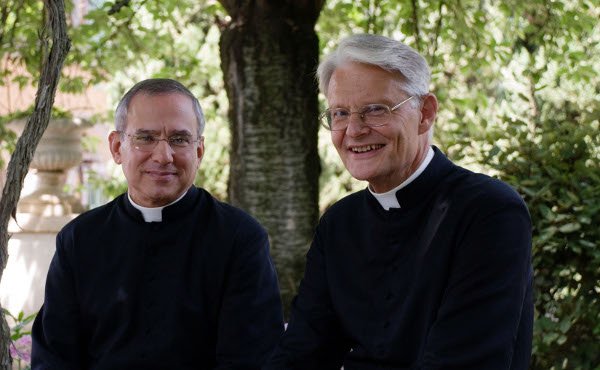The Priestly Society of the Holy Cross is an association of clergy intrinsically united to the Prelature of Opus Dei. Its aim is to promote holiness among secular priests through the exercise of their ministry in the service of the Church, according to the spirit and ascetical practice of Opus Dei. It is made up of priests incardinated in the Prelature and of other priests incardinated in their respective particular Churches. At present there are about 4,000 members. Its president is the Prelate of Opus Dei.
The diocesan clergy who belong to the Priestly Society of the Holy Cross continue to be incardinated in their own particular Church. They depend only on their bishop (nihil sine Episcopo was an expression of St. Ignatius of Antioch often cited by St. Josemaría) and are in no way under the jurisdiction of the Prelate of Opus Dei.
The Second Vatican Council encouraged associations that foster fraternal assistance to priests (cf. Decree Presbyterorum Ordinis, no. 9). As the Code of Canon Law (c. 278 §2) states, secular clergy should “hold in high esteem especially those associations which…foster their holiness in the exercise of the ministry...and promote the unity of clerics among themselves and with their own bishop.”
The spiritual help given by the Priestly Society of the Holy Cross seeks to improve the interior life of its members, encourage their fidelity in carrying out their priestly duties, and foster the union of each with his own bishop and fraternity with other priests (cf. St. Josemaría, Conversations, no. 16).
The means of formation the members receive are analogous to those offered to the lay faithful of the Prelature, with due regard for the specific character of priestly formation (cf. Presbyterorum Ordinis, no. 9; Pastores Dabo Vobis, nos. 70-81; Congregation for the Clergy, Directory for the Ministry and Life of Priests). These are meant to complement, without overriding, the dispositions for the permanent formation the bishop gives for the presbytery of his diocese. Thus, the members can receive personal spiritual direction, doctrinal and ascetical classes, days of recollection, etc., organized so as not to interfere with their ministry.
